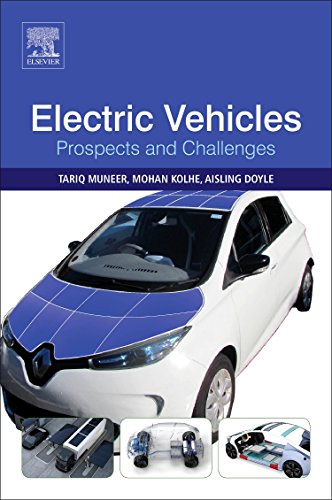"Exploring the Exciting Evolution of Electric Vehicles: A Comprehensive Guide"
Guide or Summary:Introduction to Electric VehiclesThe History of Electric VehiclesBenefits of Electric VehiclesChallenges Facing Electric VehiclesThe Future……
Guide or Summary:
- Introduction to Electric Vehicles
- The History of Electric Vehicles
- Benefits of Electric Vehicles
- Challenges Facing Electric Vehicles
- The Future of Electric Vehicles
---
Introduction to Electric Vehicles
Electric vehicles (EVs) have emerged as a revolutionary force in the automotive industry. With the growing concern over climate change and the depletion of fossil fuels, the shift towards electric mobility has gained significant momentum. EVs are not just a trend; they represent a fundamental change in how we think about transportation. This guide will delve into the evolution of electric vehicles, their benefits, challenges, and what the future holds for this exciting technology.

The History of Electric Vehicles
The journey of electric vehicles dates back to the 19th century when inventors began experimenting with electric propulsion. The first practical EV was developed in the 1830s, but it wasn't until the late 20th century that electric vehicles began to gain traction as a viable alternative to gasoline-powered cars. The oil crises of the 1970s and growing environmental awareness spurred interest in EVs, leading to the development of models like the GM EV1 in the 1990s.
Benefits of Electric Vehicles
One of the most compelling reasons to consider electric vehicles is their environmental impact. EVs produce zero tailpipe emissions, significantly reducing air pollution in urban areas. Additionally, when charged with renewable energy sources, their carbon footprint is drastically lower than that of traditional vehicles. Moreover, electric vehicles often have lower operating costs due to fewer moving parts, reduced maintenance needs, and the lower cost of electricity compared to gasoline.
Challenges Facing Electric Vehicles
Despite their advantages, electric vehicles face several challenges. One of the primary concerns is the limited range of many EVs compared to gasoline cars. While advancements in battery technology have increased range, "range anxiety" still affects potential buyers. Furthermore, the availability of charging infrastructure is crucial for the widespread adoption of electric vehicles. Many regions still lack sufficient charging stations, making long-distance travel challenging for EV owners.

The Future of Electric Vehicles
The future of electric vehicles looks promising as technology continues to evolve. Major automakers are investing heavily in electric vehicle development, with many planning to transition their entire fleets to electric by 2030. Innovations in battery technology, such as solid-state batteries, promise to increase range and decrease charging times. Additionally, the integration of smart technology and autonomous driving features in EVs is set to enhance the driving experience further.
In conclusion, electric vehicles represent a significant shift in the automotive landscape. Their evolution has been marked by challenges and triumphs, but the momentum is undeniable. As we move towards a more sustainable future, electric vehicles will play a crucial role in reducing our carbon footprint and changing the way we think about transportation. Embracing this exciting technology is not just a choice for individuals but a necessity for the planet.
This comprehensive guide aims to provide insights into the evolution of electric vehicles, highlighting their benefits, challenges, and future prospects. As the world continues to embrace sustainability, electric vehicles will undoubtedly be at the forefront of this change.
